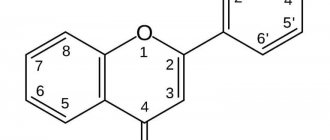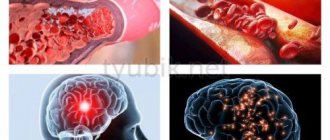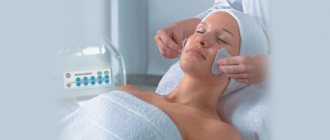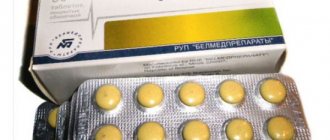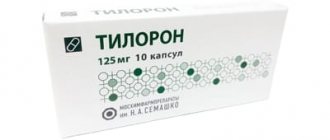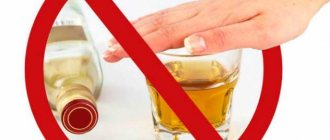Pharmacodynamics and pharmacokinetics
This hepatoprotector causes stabilization of the membranes of hepatocytes and cholangiocytes , providing a direct cytoprotective effect. By acting on bile acids, the drug reduces the content of hydrophobic, toxic acids. Reduced absorption of cholesterol in the intestinal area and other biochemical effects occur due to the hypocholesterolemic effect. At the same time, cell death, which is caused by toxic bile acids, is suppressed.
Ursodeoxycholic acid reduces the ability of gastric reflux to damage cell membranes in biliary reflux esophagitis and reflux gastritis , reduces the level of cholesterol in bile, increases its solubility, reduces the lithogenic index of bile, and so on.
The immunomodulatory effect is due to inhibition of the expression of HLA antigens in the membranes of cholangiocytes and hepatocytes , normalizes the killer activity of lymphocytes . At the same time, the development of fibrosis in patients with primary biliary cirrhosis, alcoholic steatohepatitis and cystic fibrosis , and the likelihood of developing varicose veins in the esophagus is reduced.
Absorption of ursodeoxycholic acid occurs from the jejunum by passive diffusion, but from the ileum by active transport. The distribution of the active component is characterized by a high degree of binding to proteins in the plasma. It has been established that ursodeoxycholic acid is able to penetrate the placental barrier.
Inside the body, the active substance breaks down into glycine and taurine conjugates, secreted in bile. Approximately 50-70% of metabolites are excreted in bile.
The rest penetrates the colon, being bacterially broken down into components with the production of lithocholic acid. This substance is partially absorbed from the gastrointestinal tract, then biotransformed in the liver into sulfolitocholyl taurine sulfolitocholylglycine conjugates, and then excreted from the body.
Pharmacological properties of Livodex
Livodex has a restorative and cytoprotective effect on the digestive system. The drug stabilizes hepatocyte membranes and reduces the content of potentially toxic acids, and also reduces the absorption of cholesterol and the toxicity of bile acids.
Livodex is indicated for reflux gastritis and esophagitis, since its active ingredients reduce the ability of refluxate to damage cell membranes.
As a result of the effects of Livodex, the saturation of the body with cholesterol is normalized, synthesis in the liver is suppressed and bile secretion is reduced.
This drug has a targeted effect on dissolving cholesterol stones in the gall bladder and preventing their re-formation.
The immunomodulatory effect of Livodex is aimed at suppressing antigens and normalizing the natural activity of lymphocytes.
The components of Livodex reduce the risk of developing varicose veins and diseases of the digestive system.
Livodex has good reviews as an effective drug for the prevention of liver and biliary tract diseases.
The maximum concentration of the drug in the blood plasma is achieved within 2 hours, and it is excreted from the body within 2 days with bile and feces.
Indications for use of the drug
Livodex is prescribed:
- with primary biliary cirrhosis, if there are no signs of decompensation;
- for dissolving small or medium-sized cholesterol stones, with a functioning gallbladder;
- for biliary reflux esophagitis and reflux gastritis ;
- alcoholic liver disease;
- chronic hepatitis of various origins;
- non-alcoholic steatohepatitis;
- biliary dyskinesia
- primary sclerosing cholangitis ;
- cystic fibrosis or cystic fibrosis .
Contraindications for use
It is not recommended to use Livodex in patients suffering from:
- gallstones;
- non-functioning gallbladder;
- acute inflammatory diseases of the gallbladder , intestines and bile ducts ;
- liver cirrhosis in the stage of decompensation;
- severe dysfunction of the kidneys , liver and pancreas ;
- lactose intolerance , lactase deficiency, glucose-galactose malabsorption;
- increased individual sensitivity to its components.
The drug is also prohibited in children under 3 years of age. Livodex is prescribed with caution to young patients 3-4 years old, as it is difficult for them to swallow tablets.
Side effects
During treatment with Livodex, the body may respond, which can be expressed in conditions such as:
Diarrhea, nausea, pain in the hypochondrium, and constipation;- Decompensated form of liver cirrhosis;
- Head pain, dizziness, and alopecia;
- Itching, redness, and hives;
- Psoriasis, general ailments, myalgia, Quincke's edema;
- Painful sensations in the abdomen.
What to do in case of overdose?
There have been no reports of overdose.
Contraindications
The drug should not be prescribed if the patient has such conditions as:
- Allergy to individual components that make up the medicine;
- Individual lactose intolerance;
- Liver diseases that are in the acute stage;
- Non-functioning of the gallbladder.
In addition, this remedy can be carefully prescribed to small children aged 3-4 years.
Pregnancy period
During pregnancy, this medicine can be prescribed if there is an urgent need for the drug. In other cases, you need to choose a more gentle analogue or stop treatment before the baby is born.
It is better to avoid taking Livodex while breastfeeding your baby. If this cannot be done, then you should discuss with your doctor the issue of switching your child to formula feeding.
special instructions
Successful dissolution of stones is ensured by their purely cholesterol composition, up to 15-20 mm in size. In this case, the fullness of the gallbladder should not be more than half, and the biliary tract should retain its full function.
During the entire treatment, it is necessary to monitor the activity of liver transaminases, alkaline phosphatase, GGT and bilirubin . When elevated levels persist, the drug is immediately discontinued.
At the beginning of treatment, cholecystography is performed every 4 weeks and then every 3 months. The effectiveness of therapy is monitored every six months using ultrasound. When the stones are completely dissolved, treatment is continued for another 3 months to completely dissolve the remains of small stones.
In cases where long-term treatment, for example 6-12 months, is unsuccessful, then one should not expect its effectiveness.
If during treatment non-visualization of the gallbladder is detected, this indicates that the stones have not completely dissolved and treatment must be completed.
Calcification of gallstones, deviations in the contractile activity of the gallbladder, as well as frequent attacks of biliary colic require cessation of treatment.
Livodex, instructions for use (Method and dosage)
Livodex tablets are taken orally with plenty of water.
For the treatment of each type of disorder according to indications, the appropriate dosage and duration of therapy are established. For example, to dissolve cholesterol gallstones, a daily dose of 10 mg per kg of weight is set. It is recommended to take the tablets in the evening. The average duration of therapy is 6-12 months.
When preventing the recurrence of stones, treatment does not stop even after the stones have dissolved and lasts for another couple of months.
According to the instructions for Livodex 300 mg and 150 mg, the calculation of the daily dosage depends on the patient’s weight and the recommended dose of the drug per kg of the patient’s weight.
Composition and release form of Livodex
Livodex is produced in the form of a suspension and tablets, which are film-coated, have a reddish tint and a biconvex shape.
The main active ingredient is ursodeoxycholic acid 150 mg.
Excipients: starch, sodium lauryl sulfate, hypromellose, lactose, magnesium stearate, silicon dioxide, povidone and purified talc.
The film shell of each Livodex tablet consists of cellulose, titanium dioxide, iron oxide and macrogol. The tablets are placed in blisters of 10 pieces.
Interaction
The simultaneous use of Livodex and antacids , which contain ion exchange resins and aluminum, may cause malabsorption of ursodeoxycholic acid .
Combination with lipid-lowering drugs , estrogens , neomycin or gestagens increases the saturation of bile with cholesterol and often reduces the ability of ursodeoxycholic acid to dissolve cholesterol gallstones.
This drug can increase the absorption of cyclosporine from the gastrointestinal tract, so monitoring the concentration of cyclosporine in the blood is required, and if necessary, adjust the dosage regimen.
Description and composition
The drug is available in round, biconvex tablets. They are covered with a red-brown shell, they are white at the break, and have a mark on one side.
The tablets contain ursodeoxycholic acid as an active substance. In addition to it, they contain the following additional substances:
- milk sugar;
- starch;
- MCC;
- povidone K-30;
- Aerosil;
- E572;
- talc;
- carboxymethyl starch and sodium lauryl sulfate.
The shell is formed by the following components:
- hypromellose;
- propylene glycol;
- titanium white;
- E 171.
Livodex's analogs
Level 4 ATC code matches:
Ursodex
Henofalk
Ursoliv
Ursofalk
Choludexan
Ursohol
Ursodez
Urdoxa
Ursosan
The main analogues of Livodex are the drugs Ursosan, Ursofalk, Ursohol, Choludexan, Ukrliv, Ursodex, Urdoxa and Ursolizin.
Levodex or Ursosan - which is better?
Even experienced specialists find it difficult to answer this question unambiguously. The fact is that there may be cases when it is first necessary to calm the inflammation, and then prescribe choleretic drugs. It is clarified that Ursosan does not have a sufficiently pronounced choleretic effect, like, for example, Levodex.
Therefore, treatment should be prescribed by the attending physician, since additional therapy with enzymes is often recommended - Panngrol, Pancreatin, Panzinorm, Mezim or Creon .
Analogs
Instead of Livodex, the following analogues can be used:
- Ursofalk is a complete analogue of the drug Livodex. Available in the form of suspension, tablets and capsules. This is an original medicine that has proven its effectiveness in clinical trials. In the form of a suspension, it can be used from birth. Ursofalk differs from Livodexa in its auxiliary ingredients and shelf life.
- Ursosan contains ursodeoxycholic acid as an active component. It is produced in tablets and capsules and can be used in patients over 3 years of age. Ursosan is produced in the Czech Republic and is a high-quality, complete analogue of the drug Livodex. The differences between the two medications are minimal (in the composition of additional components, expiration date).
- Karsil is a hepatoprotective agent of plant origin. It is produced in tablets for oral administration, which can be taken from 12 years of age. The drug has a minimal number of contraindications and rarely causes adverse reactions. But unlike Livodexa, Karsil does not dissolve gallstones.
- Phosphogliv is a hepatoprotector. It has antiviral and immunostimulating effects. The drug is available in capsules and in lyophilisate for the preparation of a solution for intravenous administration, which allows the drug to be prescribed to patients who cannot take it by mouth. It is allowed to be prescribed to patients over 12 years of age. Phosphogliv does not cause lysis of gallstones.
Reviews of Livodex
As a rule, discussions of this drug are found on specialized websites. At the same time, users often share information regarding reception features and ask various questions.
For example, some patients doubt the correct dosage. The fact is that the instructions indicate that you should take the tablets in the evening, but the doctor prescribed 2 tablets. However, as reviews of Livodex 300 mg show, only this dosage is one tablet, and if the drug is 150 mg, then accordingly you need to take 2 tablets in the evening.
In addition, there are reports when treatment with other drugs was replaced by Livodexa due to lack of effectiveness.
Patients undergoing treatment should understand that taking these tablets alone will not help in completely restoring the liver or clearing the gallbladder of stones. Complex therapy is usually carried out in combination with other drugs and treatment methods. Only this approach will fully optimize the state of the human digestive system.
You should also follow a careful diet.
Price
The cost of the drug depends on several criteria and may vary. Here are approximate prices.
| Name | Quantity per package (pcs.) | Cost in Russia (RUB) | Cost in Ukraine (UAH) |
| Livodex 150 mg | 50 | 290-330 | 370-390 |
| Livodex 300 mg | 50 | 440-480 | 600-650 |
| Livodex 300 mg | 100 | 750-850 | 950-1000 |
